The intended purpose of this article is to highlight – via an example – what I personally believe is a meaningful approach for exchanging ideas and viewpoints through open minded listening and curious dialogue whether face to face, on social media or through other means of communication.
I have too often to my liking experienced dialogues (especially on social media) turn into what I perceive as – at least on the surface – dogmatic battles with a possible – I think likely unconscious – intent to win an argument and convince others about certain viewpoints being true – effectively making other viewpoints false.
Who am I to Pass Judgement on to Others?
“Since we are not mind readers, we cannot possibly know what other people think – or comprehend their motives. Can we?”
Mark J. Chaudhry
A while ago I stumbled over a dialogue on the social media platform LinkedIn between David Burkus and Richard Claydon. I found the dialogue to be enjoyable and meaningful in the sense that it was an exchange of viewpoints with – in my view – some of the below listed characteristics:
- Open minded / curious and reflective exchange of ideas / viewpoints.
- Respectful yet assertive.
- Playful (friendly teasing).
- References to other people’s work (we all stand on the shoulders of giants).
- A good balance of quality and quantity in terms of the length of the individual elements of the dialogue.
As a result this dialogue made it possible for me as a reader to reflect on the viewpoints given via the dialogue. Hence I found this particular dialogue valuable and a good example to follow.
Would you call another person – that you do not know well – something negative if standing face to face – without considering your words, tone and level of voice, body language etcetera?
I believe that most of us would probably moderate our behavior based on the assumed potential reactions of the other person as how we perceive the reactions – but sometimes this does not happen (consciously – I think) – especially on social media.
I have observed many examples of hostile dialogues on social media – and in “real life”.
So why does this happen – in general – and on social media?
Is it valuable to anyone to “shout at each other” and judge each other and attribute stated viewpoints as some kind of character flaw in the other person in the dialogue? What might be the effect if I perceive another human being as “evil” or “wrong” or not having “the right values” and communicate this to them (passing judgement, labelling, name calling etc.)?
Should an idea or view point be attached to the sender of the message – or should it be separated from the sender by the receiver of the message?
Unfortunately I have myself – more times than I care to remember – fallen into the trap of not listening open-mindedly and with curiosity to someone else. This cognitive bias could be defined as prejudice – meaning that I have an overly negative opinion of someone else based on very limited information (and in my view information will never be complete and will always be my subjective interpretation – not “objective truth”). I struggle with this cognitive bias and dissonance in myself – and do not like this in myself. I do not find this of value to myself – and it is probably not valuable to others.
“I realize the cognitive bias of prejudice in myself sometimes. Catch myself in the act – so to say.”
Mark J. Chaudhry
An example is when another person that I do not relate well to in terms of their general political stance voices an opinion. Even if I agree with their specific statement – I have to be mindful to listen to their specific message – and separate that from them as a sender. If I fail to do that – then I will not listen with an open mind. Basically I risk falling into the cognitive trap of thinking: “They probably have a hidden agenda – but I know what that is”.
“I consider my thought patterns and in extension my behavior in dialogues as conceptually exemplified above extremely unfortunate. Such thinking and behavior can cause a lot of havoc in our world – and I believe and think that it does in general.”
Mark J. Chaudhry
So I try my best to have this cognitive bias front and center – when I engage in dialogue with others. In other words: A first step is always to look hard at myself and be as aware as possible of my cognitive biases – my prejudices – my blind spots (thank you to all of you who have held a mirror up in front of my face to show me when I fall into these cognitive traps).
“…sometimes people report being offended simply because their views are being challenged…”
the value of offence | qualiasoup & theramintrees (from 0:56 minutes in)
An Example of a Possible “Better” Dialogue on Social Media
I invite you to read through the dialogue below and consider the characteristics of the dialogue in the bullet points earlier in this article.
Do they resonate with you?
Note: Correct sequencing of the below dialogue is pending – while the general back and forth between all actors in the dialogue to me seems to align with the attributes mentioned.
I also invite you to disagree with me. I am sure, that I can learn something from that.
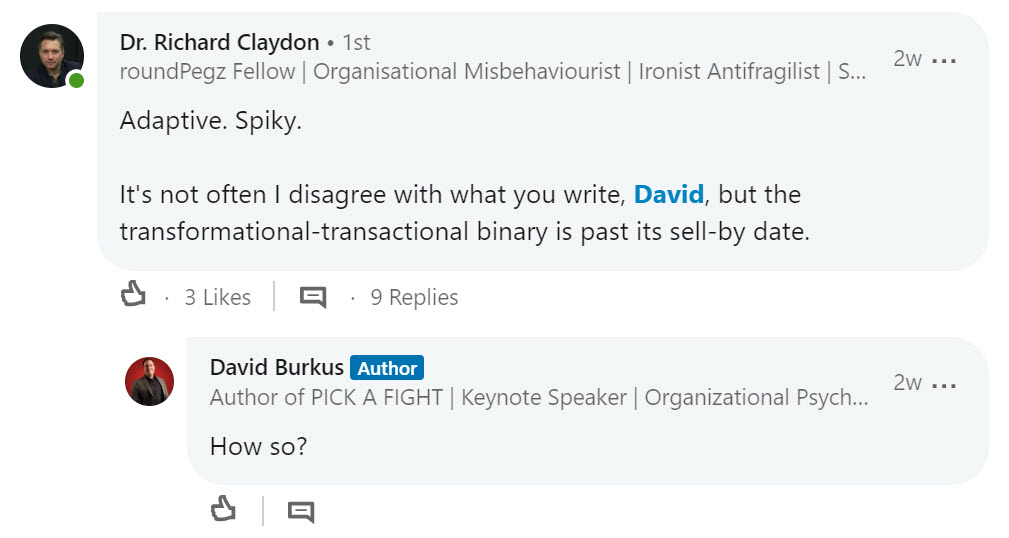
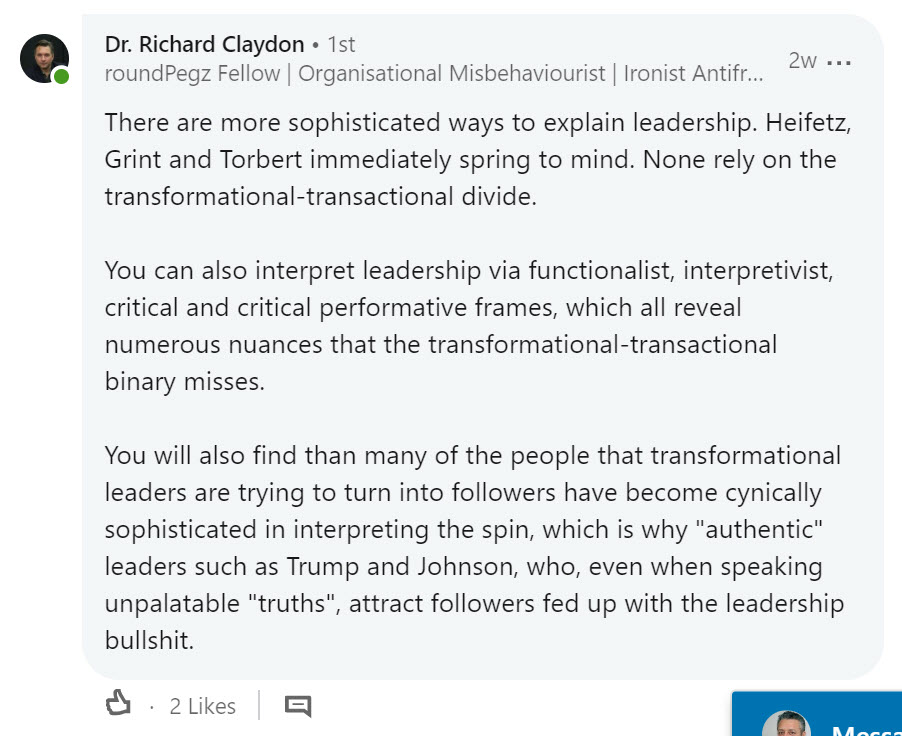
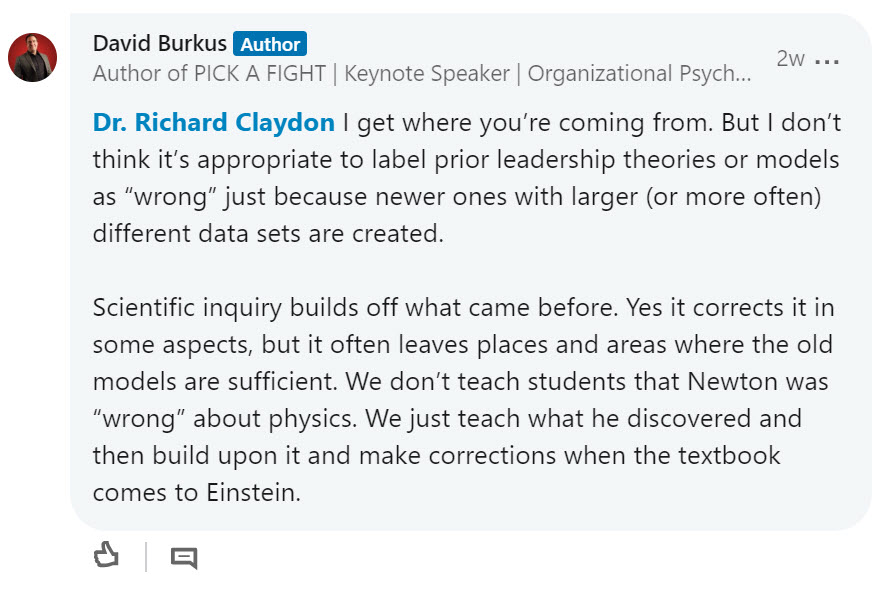



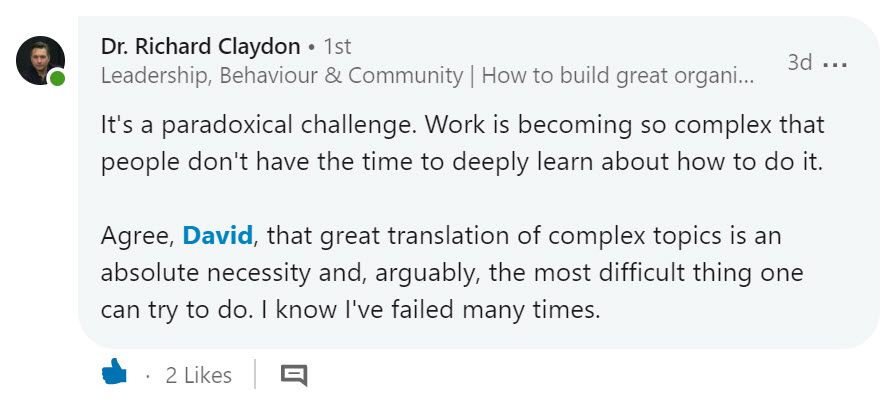

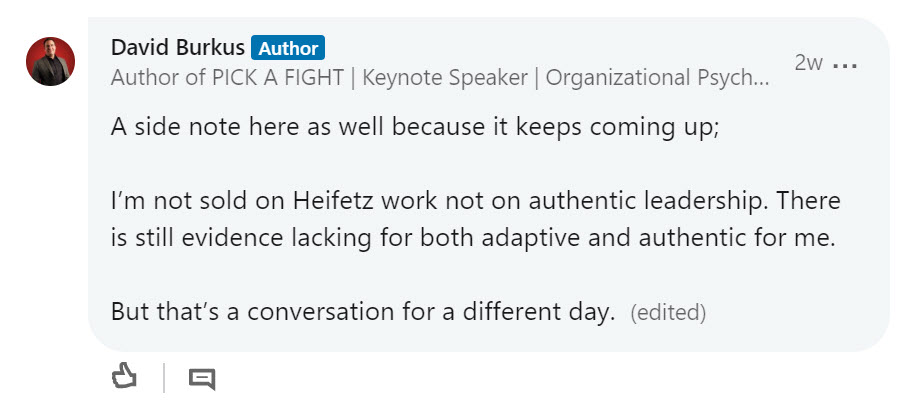













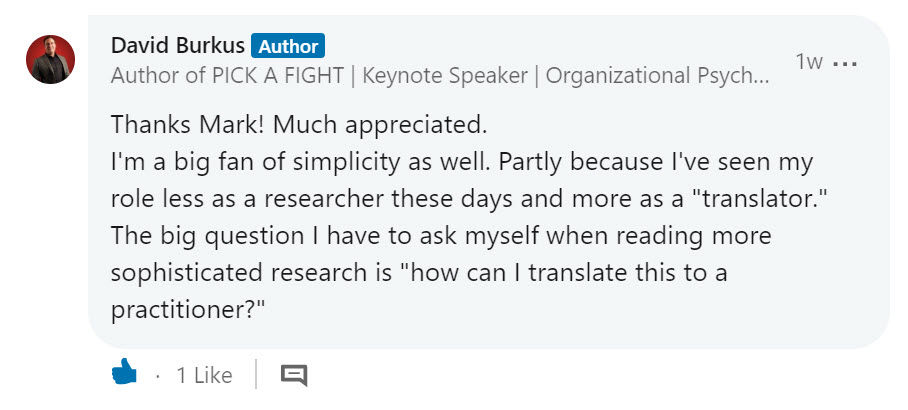



Sources
Please note that with the intention of learning and for your possible convenience I have in some cases included direct links to sources (e.g. books in Kindle format from Amazon). This is not to promote these specific companies, and I do not have any financial / economic interest in any of the individuals or organizations providing the referenced content.
- Wood, Zachary R. (2018) – “Why it’s worth listening to people you disagree with” – TED Talk
- Burkus, David (2020) – “Pick a Fight” – Audio book
- Burkus, David (2020) – “Extrinsic vs Intrinsic Motivation at Work”
- – Article / blog post
- Burkus, Davis on LinkeIn: https://www.linkedin.com/in/davidburkus/
- Claydon, Richard on LinkedIn: https://www.linkedin.com/in/drrichardclaydon/
–
